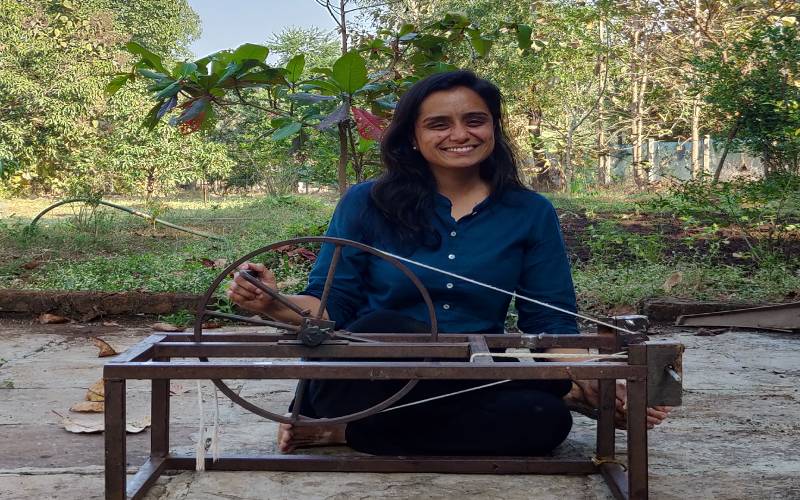
The ‘Whispering Stones’ at Coimbatore has been a hub for activities connected with food, art, craft and others. This facility belongs to the family of B. Rangaswamy Naidu, the Founder of the Iconic Rajalakshmi Mills. The family has retained the old structure, and this was used by him to supervise his huge land holdings. Well, I happened to meet Amita Deshpande in one of the exhibitions during 2018. The bags in her counter looked unique. An enquiry revealed that they were made with upcycled plastic carry bags. My little knowledge on these kinds of plastic goods told me that it takes about 500 years to decompose. Nowadays, fish, herbivores, dogs and cats are consuming this stuff! These poor beings suffer and die due the harmful effects of the carry bag and plastic wrappers that are used by the human beings who are quickly trying to exhaust the resources provided by Bhoomi Devi who is none other than Mother Nature.
Amita's stuff looked stylish and attractive. My wife, Sujatha, and I got a few bags. We retained one for ourselves while gifting away one to our close friends. It has been over three years now and our bag is doing well. It is extremely reliable. This bag has accompanied us to a number of temples prior to the lock down and has been our constant companion. The sturdiness of this bag prompted me to get in touch with Amita once again. The eco-entrepreneur has been busy with her venture, reCharkha, for some time now. She had got into the making of the bags from 2015 and founded reCharkha as a venture in 2020.
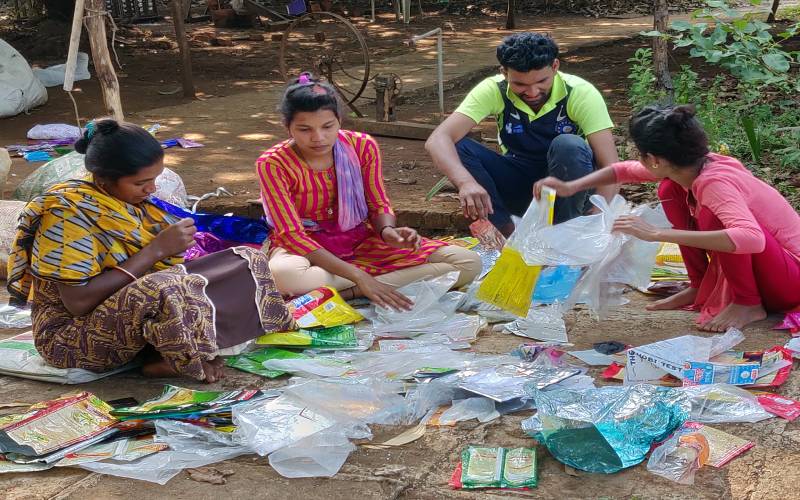
Basically, Amita and her team collect used carry-bags, biscuit wrappers etc., which are made of plastic from rag pickers. Those are, first, washed and dried well. Thereafter, trained hands use scissors and cut the plastic into thin lines. A charkha is used to spin everything onto bobbins which then gets it woven into plastic fabric. This is used to make bags and items as per the wishes of the customers or based on the material which is available. They have added value to the lives of the tribal people involved in this activity. The bags thus produced cost anywhere between Rs. 1300 and Rs. 1500. The venture is capable of producing more than a 100 bags per day. It takes about one and a half days to produce one bag.
"We do not use electricity or chemicals in our production process. The activity is fully ecofriendly. Our people cut the plastic wastes in a particular way. There are 35 people in our team and 7 of us are part of the administration. All our team members are passionate. Many of them were either volunteers or our customers. My father, Ajit Deshpande, has been a great source of motivation. My mother, Arundhati, has been supportive and my husband, Abhishek Paranjpe, is part of our team. We have loads of support from our friends and relatives. Most of our sales happen on-line through Facebook, Instagram etc., and we also export our products to resellers. They are found in U. S. A., U. K., Germany, France, Singapore, Netherlands and many other countries. Our incubation was done at the Indian Institute of Management in Bengaluru. The UNDP-SEED Programme has recognised us. Our venture is trying to give something back to nature,” smiled Amita during a casual chat.
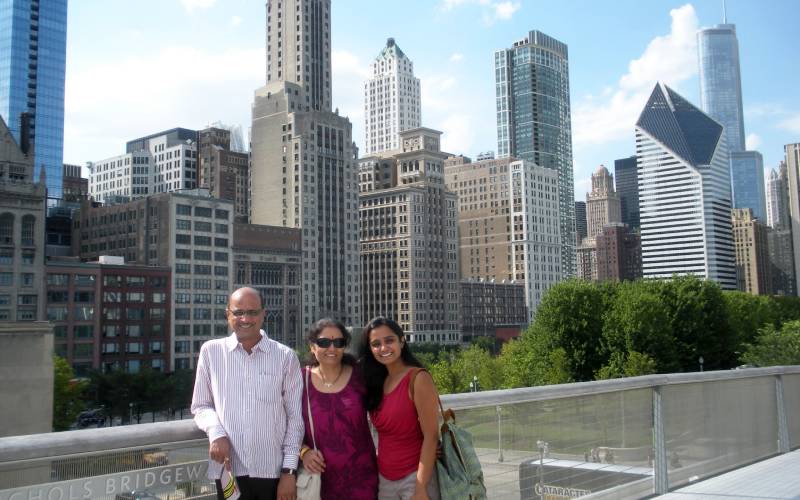
Amita had grown up in Union Territory, Dadra and Nagar Haveli. She has trained a group of people, and her facilities are spread in Pune and Dadra and Nagar Haveli. More than 80 % of Amita's team are women. “Plastic has been a constant issue and we need to use it responsibly. I was wondering how to deal with it since childhood and had also observed that recycling was limited to plastic bottles and other bigger items. Collecting smaller bags was not economically feasible. Today our venture is providing a very solution to the plastic menace. The waste-picker organizations are our source for plastic. Of course, people have given us cleaned up stuff too. Thankfully, we are able to make nice items with plastic waste. We undertake themes, corporate gifts too. However, the items are based on the kind of plastic that has been processed by us. Our clients understand that the items are based on the waste,” chuckled Amita.
Yes, we have to agree that the designs and colours found on plastic wrappers/carry bags determine the finished goods at reCharkha. Well, the designs and concepts found on these carry bags must have come from some of the best designers. Large number of products are wrapped with plastic, and they are purchased by consumers. Finally, the wrapper enters the dust bin. In a lot of cases, it ends up in the tummy of a hapless animal and kills it. Sometimes it is found clogging drains and water bodies. Birds are affected too. The work of ecopreneurs like Amita and Abhishek help in maintaining the fragile balance of nature.
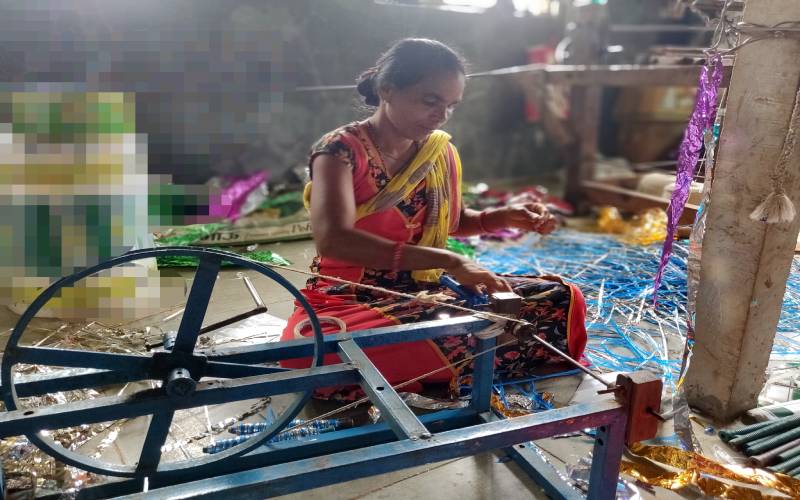
ReCharkha.org has a non-profit arm called My Ecosocial Planet. This does a lot of work connected with awareness that is required in connection with conserving ecology. Volunteers help in conducting awareness programs, collect plastics and send them, spread the good word through social media handles, support the exhibition team in their city, they also help in branding and designing the products offered by reCharkha.
Cycling is good for health and recycling is good for our planet. Let us recycle our way to a healthy future.

Photo Gallery
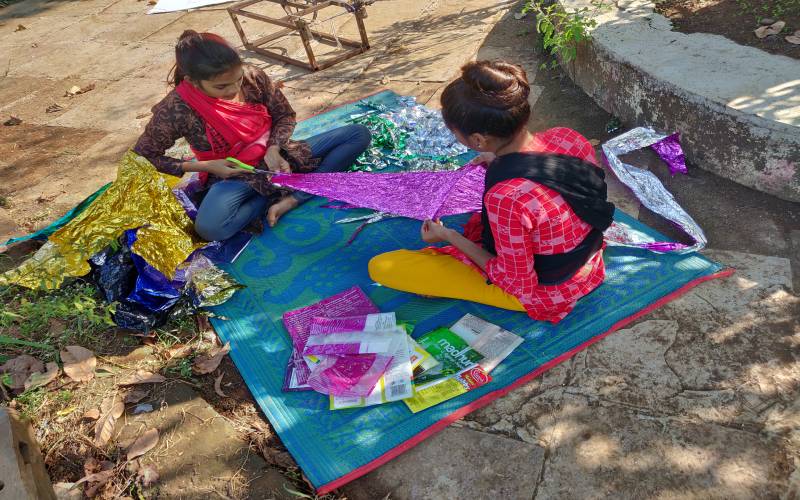
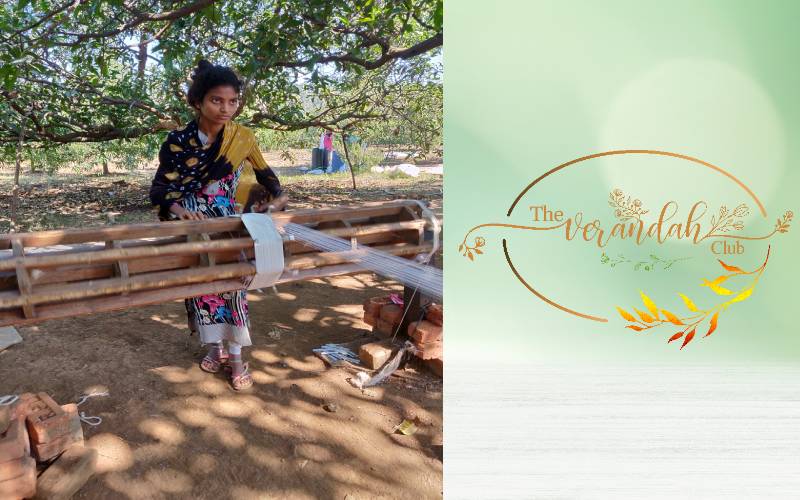
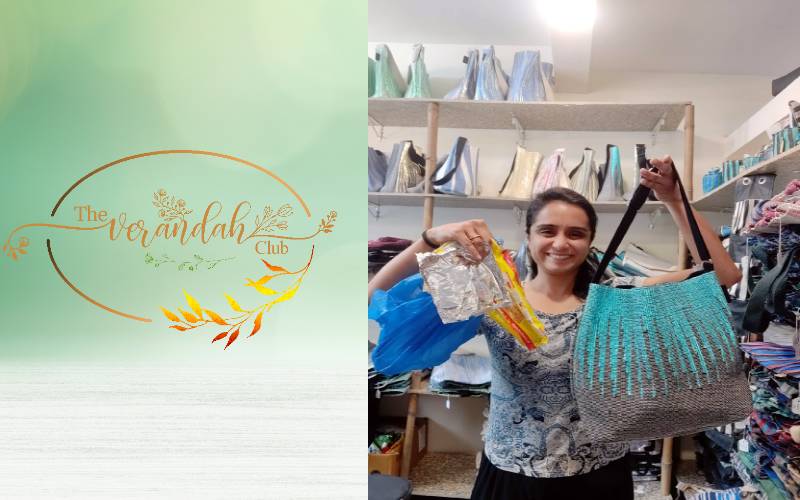
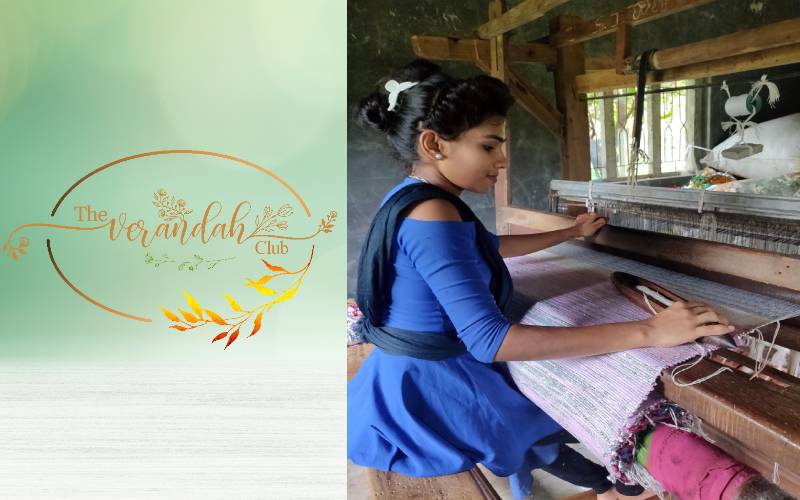
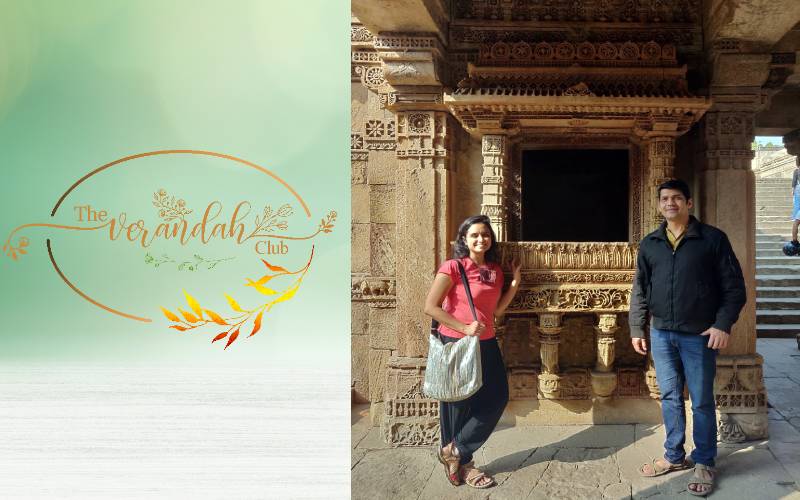
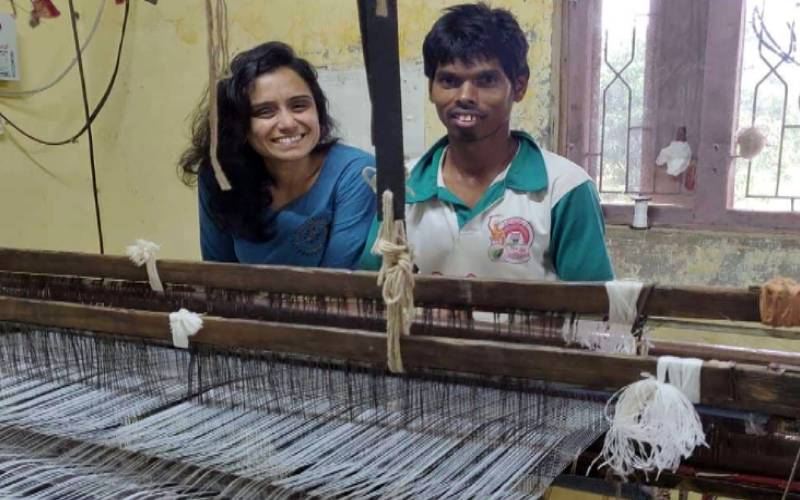
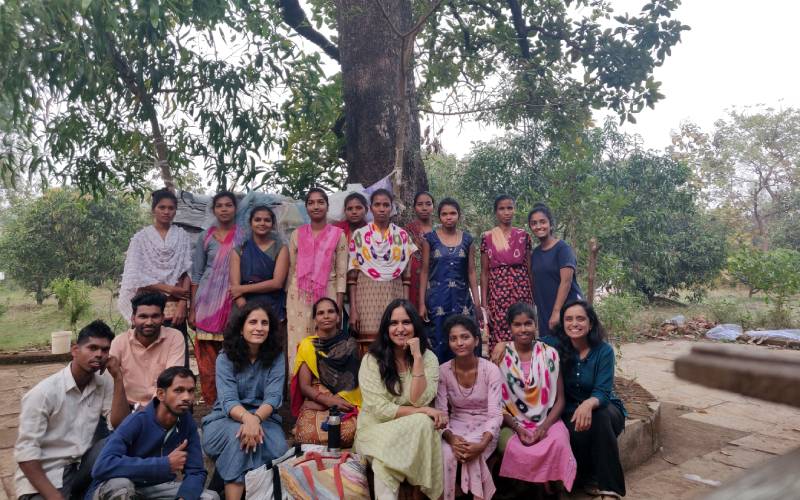
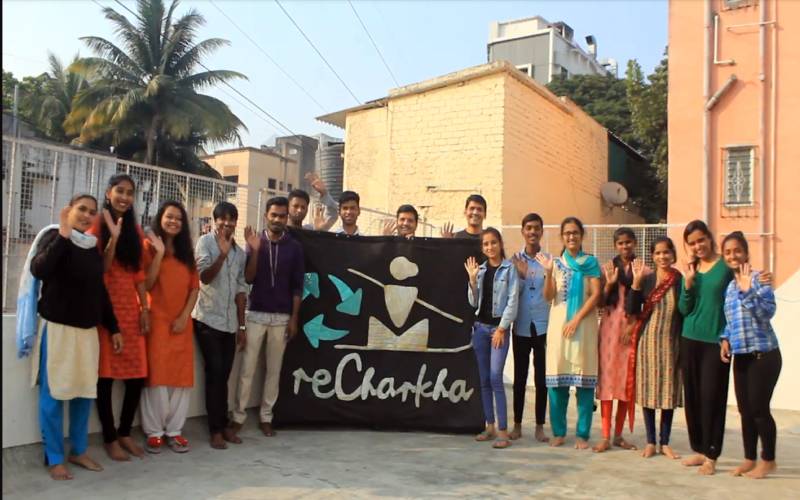
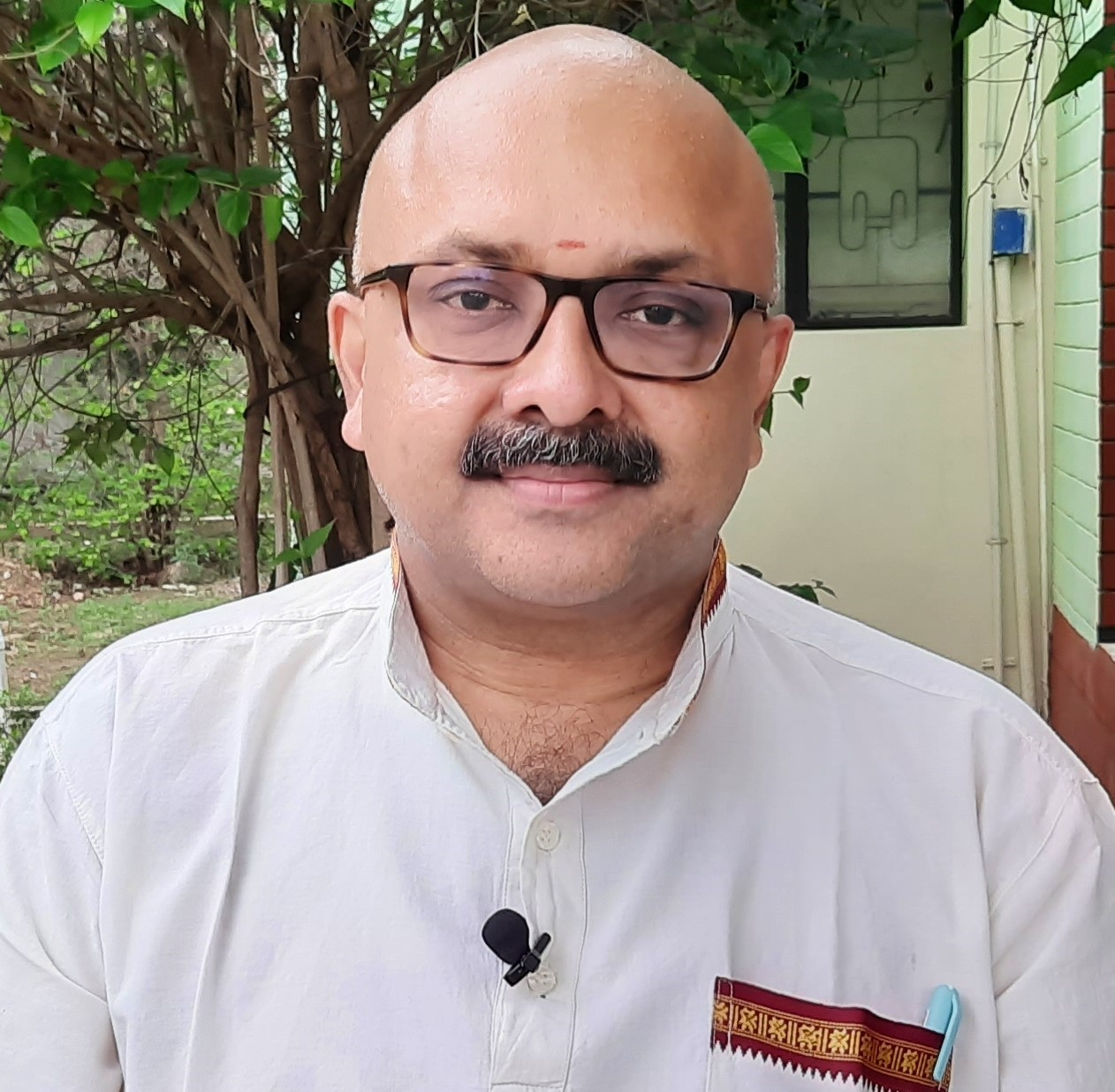
NEXT ARTICLE